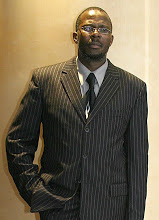Nobel Peace Winner Mohammad Yunis, who's also a Bangladesh Banker and Economist has implored South African citizens to go an extra mile to create a better life as nothing 'was impossible when you put your mind, energy and time to realise it'.
Yunis echoed these sentiments when he delivered the seventh Nelson Mandela Annual Lecture in Johannesburg over the weekend.
As a response to the current global economic crisis, Yunis proposed the start of a "Social Business" agenda, which will be responsive to the needs and the upliftment of the poor masses.
"We need to start a business oin the basis of selflessness. We propose a second type of business alongside the existing one, we need to create a "social Business".
This is the business whose primary agenda is to address and solve social problems, not to make money for its investors" proposed Yunis.
He cited the political, social and economic battles he and fellow countrymenhad to endure when they were liberated in 19970's and the severe drought that his newly-independent country had suffered.
There is only one concept of business in the whole world, he says, and the sole purpose of business is to make money.
However, Yunis hasten to caution that the customary business theory is not lateral as its interpretation of the human being saw people being treated as one-dimensional.
Yunis alluded that after taking stock of the difficulties he and his fellow countrymen were made to endure in their new-found liberation, they had decided to take the bull by its horns and established a people's 'Grameen Bank'.
He conceeded that to date this financial institution seem to have escaped or have not suffered the dire financial straits imposed by the global recession.
He cajoled participants to learn about how the operations of developmental financial institutions in this country can take leaf from the Grameen Bank, and also questioned the bottlenecks that made it difficult if not impossible for small, medium and micro enterprises to survive in South Africa.
"The real question to ask is whether conventional banks, themselves, have the political will to understand what are it means to be credit worthy as they always complain about the poor people not worth enough to qualify for credit.
Let us look up to the Grameen Bank whose finances are locally-based and its source of money was local.
We're not connected with international banks, and their crisis could not reach us yet. The banks collapsing were based on rigid paperwork, such as guarantees, collateral and legal instruments between lender and borrower to back up the legal system of lending" warned Yunis.
Accordingly, he said, this could be attributed to greed of the capitalist system and the prevailing global political economy.
"Capitalism and the marketplace that has grown up aroundf the present business theory make no room for the selfless dimension of the people.
If the problems springing from the global financial crisis were overcome, the world would still be left with some fundamental questions about the effectiveness of capitalism in tracking many other unresolved issues" concluded Yunis.
Yunis paper was delivered some weeks after the South African Deputy Minister of Finance Nhlanhla Nene had also noted the drop in both corporate and household savings during his Budget vote speech.
He noted that SA's aggregate savings had been on a declining trend.
"S.A's savings performance remains dissappointing. The country's gross savings rate as a proportion of gross domestic product had risen to 17.1% in the first quarter of 2009, up from an average of 15.4% in 2008.
Therefore, after listening to both the S.A' s Deputy Minister of Finance and the Bangladesh banker and economist, the pertinent question to pose is how do the captains of industry and the political leadership restore our economic confidence?
Sunday, July 12, 2009
Subscribe to:
Comments (Atom)


